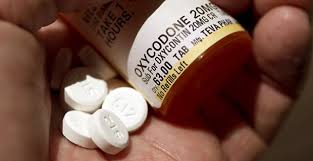Oxycontin the addictive pain killer of all ages
Oxycontin the addictive pain killer of all ages: What is oxycontin and why is it so addictive?

Oxycontin the addictive pain killer is often misused by its users to attain certain high which makes it quite addictive for health
The need to eradicate pain from our life has made us to be very innovative and a lot of drugs are being produced daily into the market. Some of these drugs are available across the counter while another set can only be issued on the doctor’s advice. However, the world is suffering from substance abuse, some of which are prescription drugs which have not helped either. When they are prescribed to us for use, sometimes we often miss use them thereby causing further addiction related complications to us. In that regard, we want to narrow this discussion to one of the drugs available in the market under the topic “Oxycontin the addictive pain killer of all ages.” Experts from AWAREmed Health and Wellness Resource Center under the able leadership of doctor Dalal Akoury MD and the president of the facility says that OxyContin is a type of medication that can actually relieve pain. It is commonly prescribed to patients by doctors and this prescription is not just to any patient but to those who have severe injuries, arthritis or cancer. Doctor Akoury registers that this is a morphine-like drug which is classified under schedule II controlled substance, which means that people need a prescription to obtain it. She adds that in relation to other painkillers, OxyContin has a long-acting formula and it works well for those who need round-the-clock relief.
The other problem with pain killer drugs like Aspirin and Tylenol is that they are not strong enough to help people who are suffering from moderate to severe pain and as a result of that users will often opt for opioids to make the pain more bearable. Unfortunately, the effectiveness of oxycontin is what makes it to be a popular street drug. Even though the allowed mode of administration of this drug is through oral consumption, miss use has always led to many people to abuse OxyContin by either crushing the tablets so that they can swallow or snort them or sometimes, they even dilute the tablets in water to for a solution which they then inject into their veins. These methods destroy the time-release mechanism, which allows the user to experience the drug’s full effect immediately.
Oxycontin the addictive pain killer of all ages: The dangers of oxycontin addiction
Like with other drugs, if the procedure is not followed dully on acquisition, it becomes a major problem to the drug enforcement officials. It therefore means that if this drug (oxycontin) is obtained illegally it will be a major issue for drug enforcement officials. This drug is commonly known in the street as Kicker, OC and Hillbilly Heroin. The danger of an addiction to OxyContin is that it will make its users feel like they can tolerate more. Remember that too much use of this drug can lead to respiratory failure and the drug can become even more dangerous when people combine it with alcohol or benzodiazepines. And besides that just like with other opiates users can develop a tolerance if they use OxyContin on a regular basis. And once they develop a tolerance for the drug, they will require larger doses to elicit the drug’s euphoric effects. Besides taking larger doses, the users also need to take the drug more often to stay high. Over time, users begin to develop a dangerous OxyContin prescription addiction which causes them to become more and more addicted each time they use the drug.
Doctor Dalal Akoury also registers that it is important to appreciate that OxyContin addiction also occurs when people use the drug in a way that the manufacturer did not intend. Like for example, those who snort or inject the drug are likely to become addicted since this is not the proper ways of administration of this drug. When people snort or inject the tablets, they feel an intense high right away. The high that people experience while abusing OxyContin is similar to the euphoria that heroin users also feel. Once they experience an intense high, their body starts to crave more of the drug. Those who abuse OxyContin regularly are likely to need to professional help.
Oxycontin the addictive pain killer of all ages: Who is vulnerable to oxycontin addiction?
When it comes to vulnerability, it is worth noting that anyone who uses OxyContin can develop an addiction indiscriminately however, in most cases it often affects those who are prone to addictive behaviors in their lifestyle. Doctor Akoury is reiterating that OxyContin drug addiction is particularly prevalent among young adults in the rural areas in relation to their counterparts in the urban centers. This is so because in some cases those who have a legal prescription often resell the tablets to other people for a profit thereby making the drug easily available to the wrong people. Alongside with that it is emerging that some people also acquire the drug by visiting multiple doctors to have more than one prescription written out so that they are in possession of enough to distribute to their illegal clients.
Many chronic pain patients worry when their doctor increases their dosage of OxyContin, but this worry need not to be there because they are under medical supervision. Nonetheless it is worth noting that the body can develop a tolerance for the drug over time. It is therefore necessary that all patients take OxyContin as directed by their physicians so that they do not get a high from using it. Finally we must also note that those who worry about becoming addicted can suffer needlessly if they refuse to take painkillers. That is why doctors always examine each patient’s history before implementing a treatment plan and if the patient has a history of drug abuse, then the doctor is likely to prescribe something other than OxyContin. Abuse of oxycontin is risky and users risk respiratory failure since the drug depresses the respiration which may lead to slowness of breath beside causing users to feel weak, tired and dizzy. In conclusion it is always very important that when it comes to addiction, everyone needs to be in close touch with addiction professionals so that any emerging problem can be addressed in good time. And for that reason, I want to encourage you that if you have any point that you need to be clarified, then you can schedule for an appointment with doctor Dalal Akoury for a professional direction.



















